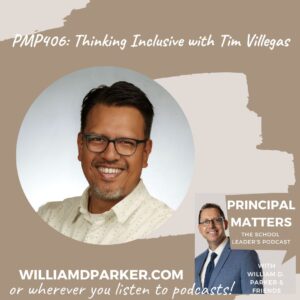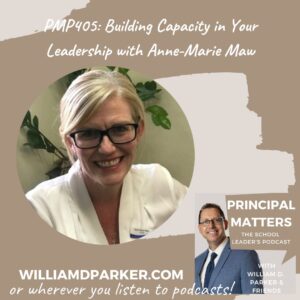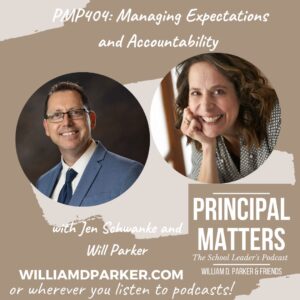Podcast: Play in new window | Download
This Christmas break, I took the family to see the newest Star Wars movie.

If you haven’t seen it, please note the forthcoming spoiler alert. In the opening scene, Jedi-in-training, Rey, has journeyed to the planet where the retired Luke Skywalker, has hidden himself away from the universe and its troubles. She climbs the heights to his hidden village and finds him meditating on a cliff overlooking the sea.
Rey introduces herself: “I’m from the Resistance,” she says, “Leia sent me. We need your help.” To her surprise the elder Luke refuses to help and walks away. And thus, begins the most important conflict of “The Last Jedi” as Rey must find a way to convince Luke to train her and help her save the Rebellion. Thankfully, Luke finally begins training her and then takes the steps necessary to save the universe.
You can see the movie for yourself, but I had that opening scene in mind last week I traveled two hours from Tulsa to the backroads in Grove, Oklahoma. I was on my way to see a Jedi-master-in-education.
I wound my way up a long driveway to beautiful home nestled on a bay above Grand Lake. Standing on the front porch was Dr. Judi Barber and her husband Dennis. After a cup of coffee and some catching up, I asked Judi if I could interview her. This was her 50th year as an education leader, and I had sat under her teaching and coaching in my early years of school admin. She had agreed days before to letting me capture an audio recording of our conversation.
Dr. Judi Barber, Jedi-Educator

Judi Barber has just finished her 50th year as an educator. She has been a Teacher, Curriculum Instructor, Arts-in-Education Coordinator, Principal, and Director of Curriculum and Instruction, in Norman Public Schools. Since her retirement she has continued work as a Special Instructor and Adjunct Professor at the University of Oklahoma and the President of her own school district consulting company, Collaborating for Results, Inc. You can also see her bio as an Oklahoma Education Hall of Fame Honoree in 2005.
Asking for Excellence
Here is a summary of the questions and takeaways from our talk:
Question #1: What would say are timeless truths that apply to education just as much today as at the start of your career?
- Parents love their children
- A strong education in the basics of reading and mathematics are essential AS ARE science, social studies, and the arts to build the capacity of curiosity.
The 9 essential elements of school are the rubric of effective schools
- Curriculum
- Evaluation and Assessment Strategies
- Instructional Strategies
- Learning Communities
- Family and Community Connections
- Professional Development
- Leadership
- Organizational Structures and Resources
- Comprehensive Planning
Source: WISE Planning Tool
Question #2: What ways do school leaders need to be adapting with the changing times?
- Understanding digital communication
- Becoming open-ended thinkers
- Applying shared leadership
Question #3: If you could go back in time and talk to yourself as beginning school leader, what advice would give?
- Be consistent in the way you follow the 9 essentials of effective schools.
- Work with parents as EQUAL partners in the education of their children.
Question #4: What advice would you give the veteran administrator?
Understand and apply that it is ALWAYS about student learning – although OTHERS often create very difficult environments. You must stay open-minded, constantly learn, and work collaboratively–there is no place for autocratic leaders in schools.
Question #5: One of your strengths has been helping other leaders grow. How can other leaders build their own capacity in developing new leaders?
Many, many ways:
- Sharing leadership – Structures – groups and teams and consistent conversations about the progress of the teams
- Dialog rather than commands
- Listening more than talking
- Respectful, authentic relationships
- Understanding adults learn through experiences
- Model the way
- Talk the walk
12 ingredients for building a strong culture:
- Collegiality
- Experimentation
- High expectations
- Trust and confidence
- Tangible support
- Reaching out to the knowledge bases
- Appreciation and recognition
- Caring, celebration and humor
- Involvement in decision making
- Protection of what’s important
- Traditions
- Honest, open communication
Source: The Cultural Norms That Affect School Improvement from the work of John Saphier and Matthew King
Question #6: If you had to recommend one book for education leaders to read, what would it be?
First, strong up-to-date leaders are readers!
- Michael Fullan’s Coherence: The Right Drivers in Action for Schools, Districts, and Systems.
- William D. Parker’s Messaging Matters: How to Inspire Teachers, Motivate Students, and Reach Communities.
Let’s Wrap This Up
Since this conversation with Judi, I have already listened back to the audio-recording three times. And each time, I have to pause and reflect. This is a conversation that is so packed with wisdom and experience, I want to encourage you to take notes as you listen or repeat the conversation if you really want to be really challenged in your growth as a school leader.
As we unplugged the laptop and microphone, I felt a little like I a Jedi-educator-in-training talking to a Jedi-master. In my mind, I was really thinking, “I’m from the Movement to Serve Schools. Other school leaders have sent me. We need your help.” And Judi Barber did not fail to step up to the call.
You can stay connected with Dr. Barber online or reach out her by email via jbarber920@gmail.com
Now It’s Your Turn
Copy the 9 essentials for effective schools and 12 ingredients for culture and tape them on your office wall or make them the background on your desktop. Review them daily for the next week and ask yourself “Where is my school in these areas and where can we grow?”.
Sign-Up For Free Updates and Ebook
When you enter your email address below, you will automatically receive my newest posts and a free Ebook, 8 Hats: Essential Roles for School Leaders. Let’s keep learning together!
Subscribe for free weekly updates and receive free e-book!
(function($) {window.fnames = new Array(); window.ftypes = new Array();fnames[0]=’EMAIL’;ftypes[0]=’email’;fnames[1]=’FNAME’;ftypes[1]=’text’;fnames[2]=’LNAME’;ftypes[2]=’text’;}(jQuery));var $mcj = jQuery.noConflict(true);
Principal Matters–The Book!

School leaders are very busy, so each of the twenty-four chapters is designed as a quick-read and followed with take-action questions for follow-up or reflection. If you want practical ideas on understanding your purpose, managing school teams, dealing with challenges, and leading with courage, action, motivation, and teamwork, go HERE to pick up a copy for you or your team.
Messaging Matters

Harness the power of messaging to create a culture of acknowledgment, respect, and celebration. Written specially for leaders, this title is divided into three parts, helping readers to maximize their role as chief communicators with students, teachers, and parents and community. Each chapter includes suggestions for using digital tools to enhance messaging and ends with reflection questions and practical next steps.


